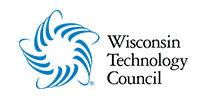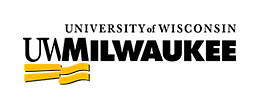Contacts:
Jeanan Yasiri Moe, Director of Strategic Communications, WARF
[email protected] | 608.960.9892
Tom Still, President, Wisconsin Technology Council
[email protected] | 608.442.7557
MADISON, Wis. – Nationally known scholar and author John Austin will anchor the first of two webinars Aug. 11 that will define Midwest research and innovation assets and how a proposed $100 billion federal investment can build on those resources to the benefit of the nation.
University of Michigan lecturer Austin, who has worked for the Brookings Institution, the Chicago Council for Global Affairs, the Michigan Economic Center and more, headlines an 11 a.m., Aug. 11 webinar on “Shaping the ‘Endless Frontier’: How the Midwest can spark the U.S. economy.”
The series draws its name from the “Endless Frontier Act,” which has been introduced in both houses of Congress with bipartisan sponsors that include U.S. Rep. Mike Gallagher, R-WI and U.S. Rep. Ro Khanna, D-CA. The act proposes expansion of the National Science Foundation, $100 billion for advancing science and tech R&D, and $10 billion for regional technology hubs. Those hubs would help to launch companies, revive U.S. manufacturing and create jobs that jump-start communities. Both congressmen will participate in the second part of our series.
Austin will review recent reports on the state of the Midwest innovation economy, including “A vital Midwest: The path to a new prosperity,” which he co-authored in early 2020. Along with a report by the Brookings Institution, the Chicago Council for Global Affairs report helped to inspire the bill.
He will be joined in the Aug. 11 webinar by Erik Iverson, chief executive officer of the Wisconsin Alumni Research Foundation, and Ruben Anthony, chief executive officer of the Urban League of Greater Madison. Tom Still, president of the Wisconsin Technology Council, will moderate. Together, panelists will explore recent research on how place-based investments in emerging growth centers across the country can remedy regional gaps in capital investment, maintain U.S. leadership in innovation, and attract the tech stars of the future to the nation’s heartland.
“The Midwest region has been recognized on an ever-increasing basis for the amount and quality of technology innovation, and I’m proud to say Wisconsin is leading the charge,” says Erik Iverson, CEO of WARF. “I very much look forward to discussing how our region can catalyze research and technology across the nation and sharing our successes and ongoing opportunities with the world.”
“These are critical conversations for the new normal in a COVID-19 world that has disrupted nearly every industry – and has hit higher education hard,” said Mark Mone, UW-Milwaukee Chancellor. “It is imperative that we invest in research, tech hubs and innovation in this environment. Future generations will depend on new knowledge and discoveries that will give rise to economic prosperity.”
Registration for the Aug. 11 webinar is open here. Registration is free but required in advance.
A second webinar on Sept. 16 will drill into the details of the “Endless Frontier Act” and how it will become part of the economic policy debate taking place during the fall elections and the upcoming sessions of Congress. Panelists will include Congressman Mike Gallagher (R-WI), Congressman Ro Khanna (D-CA), Chancellor Mark Mone of UW-Milwaukee and Melissa Skala, investigator at the Morgridge Institute for Research and professor of biomedical engineering at UW-Madison.
Registration for the Sept. 16 webinar is open here.
“The Wisconsin Technology Council has long believed the R&D resources available in Wisconsin and the Upper Midwest are second to none,” said Tom Still, president of the Tech Council. “That includes academic institutions, federal laboratories, cutting-edge manufacturers, emerging tech hubs and resources that can turn ideas into products.”
“Capitalizing on Midwestern assets to benefit this multi-state region and advance the nation’s high-tech potential requires collaboration between private industry, community leaders, and policy makers at all levels,” said Rob Marchant, president of Michael Best Strategies. “We at Michael Best Strategies are proud to partner with leaders in the private and public sectors to lift up the tremendous opportunity presented by targeted investments in Midwest ‘growth centers.’”
The series is a partnership between WARF, UW-Milwaukee, the Wisconsin Technology Council and Michael Best Strategies. To learn more, visit: warf.org/frontiers.
###




